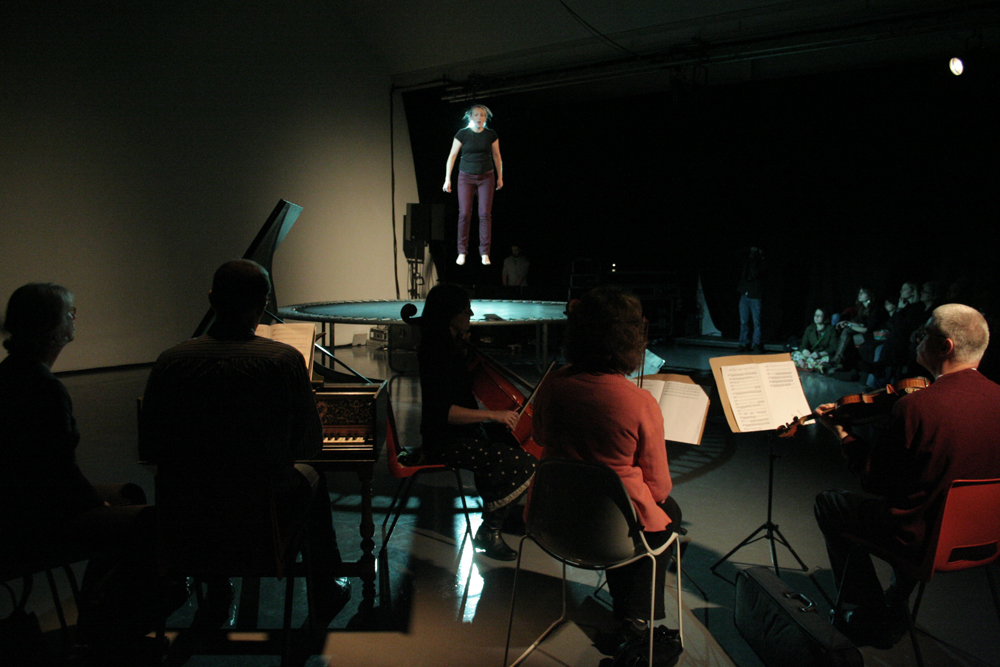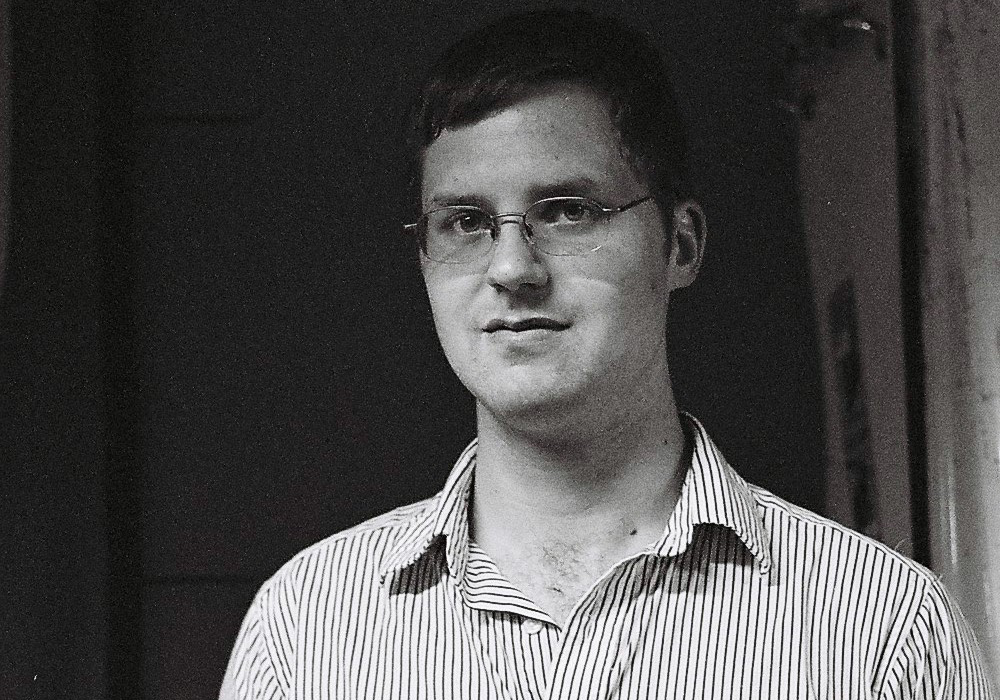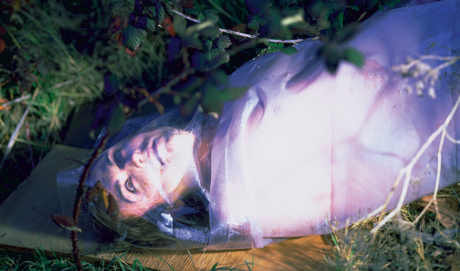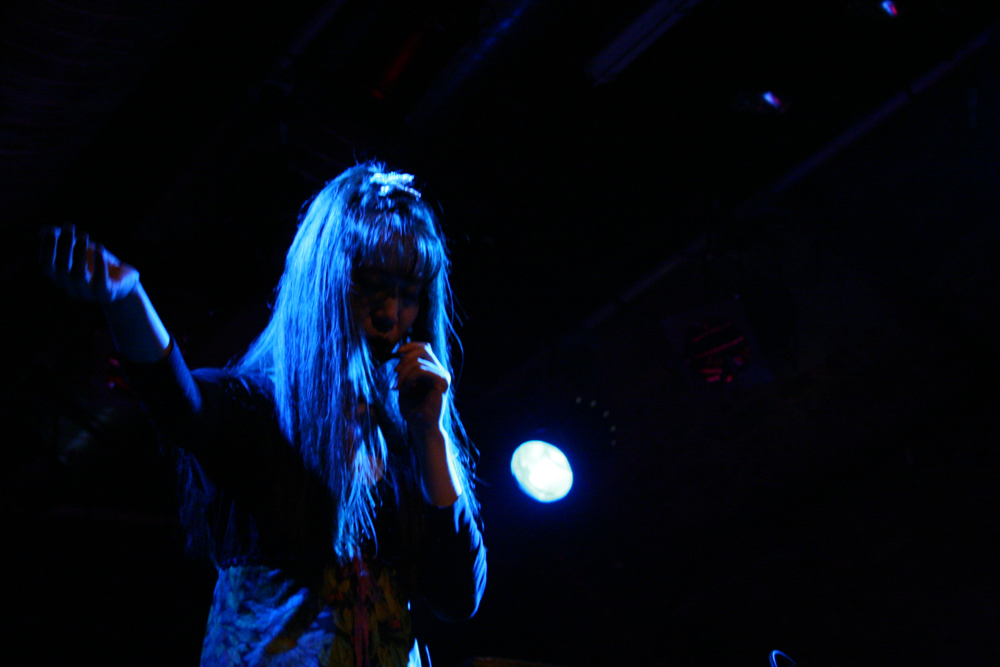
As Jane Edwards and Geoffrey Rush
Aileen Campbell
A chorister attempting to sing Vivaldi, with live accompaniment, while trampolining for 20 minutes.
Arika have been creating events since 2001. The Archive is space to share the documentation of our work, over 600 events from the past 20 years. Browse the archive by event, artists and collections, explore using theme pairs, or use the index for a comprehensive overview.

A chorister attempting to sing Vivaldi, with live accompaniment, while trampolining for 20 minutes.

Reading their letters to each other, and chatting about prefigurative politics as the practice of relentlessly building worlds through unspeakable violence and loss; of building worlds and living in them anyway.

Bleu Shut reveals, and allows us to enjoy, our gullibility within the pervasive absurdity of modern life.

A sound of buzzing and flickering metallic drones, glottal stops and guttural growls, and also an explosiveness and purity of sound that reminds you as much of Bill Dixon as anyone else.

How do poetry and maths stitch together pictures of our fractured situation from its wreckage and relics, from the debris of hope and the well of residues that make us what we are?

Ken Jacobs chats to Edwin Carels: Edwin is a curator based in Ghent, responsible for some fantastic programmes of experimental film and art at the Rotterdam Film festival (amongst others).
Tiny fragments of sound recombined and woven into spare and precise, violent yet beautiful pieces

Umeda is a Japanese artist who is as fascinated in setting up interesting situations to observe, as he is in creating performances.

Taking a scalpel to the relationship between performer and audience: cutting something out to see what’s left, a drastic subtraction and shift of emphasis.

“I am truly without faith. In a media marketplace that demands soulness, I can only offer soulnessless.”

Wordless, reverb drenched voice, ghosted electronics, seething and ferocious electronic damage and Patty Waters style vocal mania.

The program of composed music including Feldman’s Instruments III, Ligeti’s piece for 100 Metronomes Poeme Sympathetique, and Rebonds B by Iannis Xenakis.